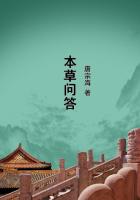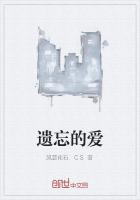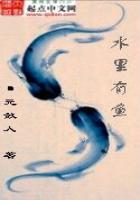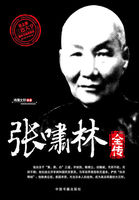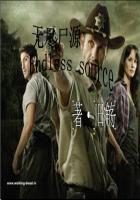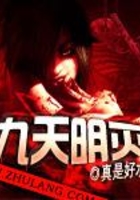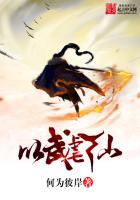In August,1909,Richard and his wife left Mount Kisco for a visit to Mr.and Mrs.Clark at Marion.While there my brother attended and later on wrote an article on the war manoeuvres held at Middleboro,Massachusetts.
MARION,MASSACHUSETTS.
August 16th,1909.
DEAR MOTHER:
We had a splendid day to day.I arranged to have Cecil meet me at eleven at Headquarters in the woods below Middleboro,and I spent the morning locating different regiments.Then,after I "met up"with her,I took her in my car.Both she and Hiller were awfully keen over it,so,we got on splendidly.
And,of course,Hiller's knowledge of the country was wonderfully convenient.We had great luck in seeing the only fight of the day,the first one of the war.Indeed,I think we caused it.There was a troop of cavalry with a Captain who was afraid to advance.I chided him into doing something,the umpire having confided to me,he would mark him,if he did not.But,he did it wrong.Anyway,he charged a barn with 36troopers and lost every fourth man.In real warfare he would have lost all his men and all his horses.Cecil and Hiller pursued in the car at the very heels of the cavalry,and I ran ahead with the bicycle scouts.It was most exciting.I am going out again to-morrow.Lots of Love to you all.
DICK.
MARION,MASSACHUSETTS.
August 19th,1909.
DEAR MOTHER:
I got in last night too late to write and I am sorry.To-day,the war came to an end with our army,the Red one,with the road to Boston open before it.Indeed,when the end came,they were fighting with their backs to that City,and could have entered it to-night.I begged both Bliss and Wood to send in the cavalry just for the moral effect,but they were afraid of the feeling,that was quite strong.I had much fun,never more,and saw all that was worth seeing.I was glad to see I am in such good shape physically,but with the tramping I do over the farm,it is no wonder.I could take all the stone walls at a jump,while the others were tearing them down.I also met hundreds of men I knew and every one was most friendly,especially the correspondents.Just as I liked to be on a story with a "star"man when I was a reporter,they liked having a real "war"correspondent,take it seriously.
They were always wanting to know if it were like the Real Thing,and as I assured them it was,they were satisfied.
Some incidents were very funny.I met a troop of cavalry this morning,riding away from the battle,down a crossroad,and thinking it was a flanking manoeuvre,started to follow them with the car."Where are you going?"I asked the Captain.
"Nowhere,"he said,"We are dead."An Umpire was charging in advance of two troops of the 10th down a state road,when one trooper of the enemy who were flying,turned back and alone charged the two troops."You idiot"!yelled the Umpire,"don't you know you and your horse are shot to pieces?""Sure,I know it,"yelled the trooper "but,this ----horse don't know it."RICHARD.
Early in the fall of 1909Richard returned from Marion to New York and went to Crossroads,where for the next three years he remained a greater part of the time.They were years of great and serious changes for him.An estrangement of long standing between him and his wife had ended in their separation early in 1910,to be followed later by their divorce.In September of that year my mother died while on a visit to Crossroads.
After my father's death life to her became only a period of waiting until the moment came when she would rejoin him--because her faith was implicit and infinite.She could not well set about preparing herself because all of her life she had done that and,so,smiling and with a splendid bravery and patience she lived on,finding her happiness in bringing cheer and hope and happiness to all who came into the presence of her wonderful personality.The old home in Philadelphia was just the same as it had been through her long married life--that is with one great difference,but on account of this difference I knew that she was glad to spend her last days with Richard at Crossroads.And surely nothing that could be done for a mother by a son had been left undone by him.Through these last long summer days she sat on the terrace surrounded by the flowers and the sunshine that she so loved.Little children came to play at her knee,and old friends travelled from afar to pay her court.
In the winter of 1910-11my brother visited Aiken,where he spent several months.The following June he went to London at the time of King George's coronation,but did not write about it.Again,in November,1911,he visited my sister in London,but returned to New York in January,1912,and spent a part of the winter in Aiken and Cuba.At Aiken he found at least peace and the devotion of loving friends that he so craved,but in London and Cuba,which once had meant so much to him,he seemed to have lost interest entirely.But not once during these years did he cease working,and working hard.On almost every page of his diary at this period I find such expressions as "wrote 500words for discipline."And again "Satisfaction in work of last years when writing for existence,has been up to any I ever wrote."And in spite of all of the trouble of these days,he not only wrote incessantly but did some of his very finest work.
Personally I have never seen a man make a more courageous fight.To quote again from his diary of this time:"Early going to my room saw red sunrise and gold moon.I seemed to stop worrying about money.With such free pleasures I found Icould not worry.Every day God gives me greater delight in good things,in beauty,and in every simple exercise and amusement."Twice during these difficult days he went to visit Gouverneur Morris and his wife at Aiken,and after Richard's death his old friend wrote of the first of these visits:
"It was in our little house at Aiken,in South Carolina,that he was with us most and we learned to know him best,and that he and I became dependent upon each other in many ways.
"Events,into which I shall not go,had made his life very difficult and complicated.And he who had given so much friendship to so many people needed a little friendship in return,and perhaps,too,he needed for a time to live in a house whose master and mistress loved each other,and where there were children.Before he came that first year our house had no name.Now it is called `Let's Pretend.'
"Now the chimney in the living-room draws,but in those first days of the built-over house it didn't.At least,it didn't draw all the time,but we pretended that it did,and with much pretense came faith.From the fireplace that smoked to the serious things of life we extended our pretendings,until real troubles went down before them--down and out.
"It was one of Aiken's very best winters,and the earliest spring I ever lived anywhere.R.H.D.came shortly after Christmas.The spiraeas were in bloom,and the monthly roses;you could always find a sweet violet or two somewhere in the yard;here and there splotches of deep pink against gray cabin walls proved that precocious peach-trees were in bloom.It never rained.At night it was cold enough for fires.In the middle of the day it was hot.The wind never blew,and every morning we had a four for tennis and every afternoon we rode in the woods.And every night we sat in front of the fire (that didn't smoke because of pretending)and talked until the next morning.
"He was one of those rarely gifted men who find their chiefest pleasure not in looking backward or forward,but in what is going on at the moment.Weeks did not have to pass before it was forced upon his knowledge that Tuesday,the fourteenth (let us say),had been a good Tuesday.He knew it the moment he waked at 7A.M.,and perceived the Tuesday sunshine making patterns of bright light upon the floor.The sunshine rejoiced him and the knowledge that even before breakfast there was vouchsafed to him a whole hour of life.That day began with attentions to his physical well-being.There were exercises conducted with great vigor and rejoicing,followed by a tub,artesian cold,and a loud and joyous singing of ballads.
"The singing over,silence reigned.But if you had listened at his door you must have heard a pen going,swiftly and boldly.He was hard at work,doing unto others what others had done unto him.You were a stranger to him;some magazine had accepted a story that you had written and published it.
R.H.D.had found something to like and admire in that story (very little perhaps),and it was his duty and pleasure to tell you so.If he had liked the story very much he would send you instead of a note a telegram.Or it might be that you had drawn a picture,or,as a cub reporter,had shown golden promise in a half column of unsigned print,R.H.D.
would find you out,and find time to praise you and help you.
So it was that when he emerged from his room at sharp eight o'clock,he was wide-awake and happy and hungry,and whistled and double-shuffled with his feet,out of excessive energy,and carried in his hands a whole sheaf of notes and letters and telegrams.
"Breakfast with him was not the usual American breakfast,a sullen,dyspeptic gathering of persons who only the night before had rejoiced in each other's society.With him it was the time when the mind is,or ought to be,at its best,the body at its freshest and hungriest.Discussions of the latest plays and novels,the doings and undoings of statesmen,laughter and sentiment--to him,at breakfast,these things were as important as sausages and thick cream.
"Breakfast over,there was no dawdling and putting off of the day's work (else how,at eleven sharp,could tennis be played with a free conscience?).Loving,as he did,everything connected with a newspaper,he would now pass by those on the hall-table with never so much as a wistful glance,and hurry to his workroom.
"He wrote sitting down.He wrote standing up.And,almost you may say,he wrote walking up and down.Some people,accustomed to the delicious ease and clarity of his style,imagine that he wrote very easily.He did and he didn't.
Letters,easy,clear,to the point,and gorgeously human,flowed from him without let or hindrance.That masterpiece of corresponding,the German March through Brussels,was probably written almost as fast as he could talk (next to Phillips Brooks,he was the fastest talker I ever heard),but when it came to fiction he had no facility at all.Perhaps I should say that he held in contempt any facility that he may have had.It was owing to his incomparable energy and Joblike patience that he ever gave us any fiction at all.Every phrase in his fiction was,of all the myriad phrases he could think of,the fittest in his relentless judgment to survive.
Phrases,paragraphs,pages,whole stories even,were written over and over again.He worked upon a principle of elimination.
If he wished to describe an automobile turning in at a gate,he made first a long and elaborate deion from which there was omitted no detail,which the most observant pair of eyes in Christendom had ever noted with reference to just such a turning.Thereupon he would begin a process of omitting one by one those details which he had been at such pains to recall;and after each omission he would ask himself,`Does the picture remain?'If it did not,he restored the detail which he had just omitted,and experimented with the sacrifice of some other,and so on,and so on,until after Herculean labor there remained for the reader one of those swiftly flashed ice-clear pictures (complete in every detail)with which his tales and romances are so delightfully and continuously adorned.
"But it is quarter to eleven,and this being a time of holiday,R.H.D.emerges from his workroom happy to think that he has placed one hundred and seven words between himself and the wolf who hangs about every writer's door.He isn't satisfied with those hundred and seven words.He never was in the least satisfied with anything that he wrote,but he has searched his mind and his conscience and he believes that under the circumstances they are the very best that he can do.
Anyway,they can stand in their present order until--after lunch.
"A sign of his youth was the fact that to the day of his death he had denied himself the luxury and slothfulness of habits.
I have never seen him smoke automatically as most men do.He had too much respect for his own powers of enjoyment and for the sensibilities,perhaps,of the best Havana tobacco.At a time of his own deliberate choosing,often after many hours of hankering and renunciation,he smoked his cigar.He smoked it with delight,with a sense of being rewarded,and he used all the smoke there was in it.
"He dearly loved the best food,the best champagne,and the best Scotch whiskey.But these things were friends to him,and not enemies.He had toward food and drink the continental attitude;namely,that quality is far more important than quantity;and he got his exhilaration from the fact that he was drinking champagne and not from the champagne.Perhaps I shall do well to say that on questions of right and wrong he had a will of iron.All his life he moved resolutely in whichever direction his conscience pointed;and although that ever present and never obtrusive conscience of his made mistakes of judgment now and then,as must all consciences,I think it can never once have tricked him into any action that was impure or unclean.Some critics maintain that the heroes and heroines of his books are impossibly pure and innocent young people.R.H.D.never called upon his characters for any trait of virtue,or renunciation,or self-mastery of which his own life could not furnish examples."In June of 1912Richard reported the Republican convention at Chicago.Shortly after this,on July 8,he married at Greenwich,Connecticut,Miss Elizabeth Genevieve McEvoy,known on the stage as Bessie McCoy,with whom he had first become acquainted in 1908after the estrangement from his wife.
Richard and his wife made their home at Crossroads,where he devoted most of his working hours to the writing of short stories.In August of that year my brother,accompanied by his wife,returned to Chicago to report the Progressive convention.During the year 1913he wrote and produced the farce "Who's Who,"of which William Collier was the star,and in the fall of the same year spent a month in Cuba,with Augustus Thomas,where they produced a film version of "Soldiers of Fortune."In referring to this trip,Thomas wrote at the time of Richard's death:
"In 1914a motion-picture company arranged to make a feature film of the play,and Dick and I went with their outfit to Santiago de Cuba,where,twenty years earlier,he had found the inspiration for his story and out of which city and its environs he had fashioned his supposititious republic of Olancho.On that trip he was the idol of the company.With the men in the smoking-room of the steamer there were the numberless playful stories,in the rough,of the experiences on all five continents and seven seas that were the backgrounds of his published tales.
"At Santiago,if an official was to be persuaded to consent to some unprecedented seizure of the streets,or a diplomat invoked for the assistance of the Army or the Navy,it was the experience and good judgment of Dick Davis that controlled the task.In the field there were his helpful suggestions of work and make up to the actors,and on the boat and train and in hotel and camp the lady members met in him an easy courtesy and understanding at once fraternal and impersonal.
"The element that he could not put into the account and which is particularly pertinent to this page,is the author of `Soldiers of Fortune'as he revealed himself to me both with intention and unconsciously in the presence of the familiar scenes.
"For three weeks,with the exception of one or two occasions when some local dignitary captured the revisiting lion,he and I spent our evenings together at a cafe table overlooking `The Great Square,'which he sketches so deftly in its atmosphere when Clay and the Langhams and Stuart dine there.At one end of the plaza the President's band was playing native waltzes that came throbbing through the trees and beating softly above the rustling skirts and clinking spurs of the senoritas and officers sweeping by in two opposite circles around the edges of the tessellated pavements.Above the palms around the square arose the dim,white facade of the Cathedral,with the bronze statue of Anduella the liberator of Olancho,who answered with his upraised arm and cocked hat the cheers of an imaginary populace.
"Twenty years had gone by since Dick had received the impression that wrote those lines,and now sometimes after dinner half a long cigar would burn out as he mused over the picture and the dreams that had gone between.From one long silence he said:`I think I'll come back here this winter and bring Mrs.Davis with me--stay a couple of months.'What a fine compliment to a wife to have the thought of her and that plan emerge from that deep and romantic background.
"The picture people began their film with a showing of the `mountains which jutted out into the ocean and suggested roughly the five knuckles of a giant's hand clenched and lying flat upon the surface of the water.'That formation of the sea wall is just outside of Santiago.`The waves tunnelled their way easily enough until they ran up against those five mountains and then they had to fall back.'How natural for one of us to be unimpressed by such a feature of the landscape and yet how characteristic of Dick Davis to see the elemental fight that it recorded and get the hint for the whole of the engineering struggle that is so much of his book.
"We went over those mountains together,where two decades before he had planted his banner of romance.We visited the mines and the railroads and everywhere found some superintendent or foreman or engineer who remembered Davis.
He had guessed at nothing.Everywhere he had overlaid the facts with adventure and with beauty,but he had been on sure footing all the time.His prototype of MacWilliams was dead.
Together we visited the wooden cross with which the miners had marked his grave.





